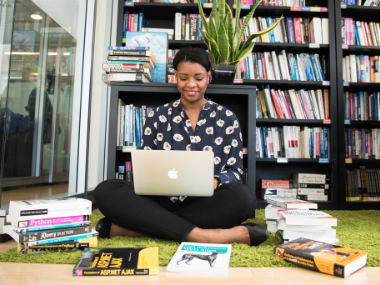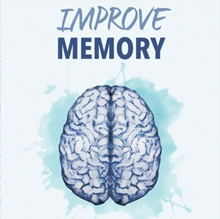
People often think of hypnosis and hypnotherapy as treatments for problems. After all, we all know people who used hypnosis to stop smoking, lose weight or tackle a phobia.
However, even if you're generally happy and well, hypnosis can help you make the best of yourself. One thing it is particularly good at boosting is your capacity for learning.
In this guide to the use of hypnosis to facilitate learning, we'll look at how you can tap into your subconscious mind to improve your ability to acquire new skills.
To begin, we'll consider how and why this process is helpful, giving you an explanation of the process of self-hypnosis and exploring the different hypnosis learner types.
Next, we'll turn to four different types of learning through hypnosis, considering what you can gain from each. Finally, we'll close by briefly considering how the same sort of hypnosis interventions can help to boost your memory as well.
How Can Hypnosis Learning Help You?

In the case of hypnosis for learning, going into a hypnotic trance can do all this and more.
Indeed, hypnotherapy also helps you get into a state of mind in which it's easier to take on board and process new information.
This state is broadly similar to the one you attain during meditation or mindfulness exercises, but if anything it's even more focused.
Distractions are eliminated, and you devote your brain's full power to the new skill you want to cultivate.
The Hypnosis Learner Types

For example, there are fast learners and slow learners - both can enjoy enhanced learning through self-hypnosis, but the latter may require more sessions.
Meanwhile, some people have more natural mastery of their conscious mind, while others take time to develop this deeper control.
In addition, there are visual learners and those who have a more auditory learning style.
Those with an auditory style may pick up hypnosis more easily, but those who are visual just need to ensure that they choose a self-hypnosis program with a heavy visualization component.
However, the good news is that people of all learning styles will notice the benefits of hypnosis-boosted learning and there is not necessarily a better outcome for one group than another. The process simply is quicker for some people than others.
How Does Hypnosis For Learning Work?

In some cases, you'll be asked to picture something like a descending flight of stairs.
Secondly, there is the visualization stage, in which the hypnotherapist gets you to properly connect with what you want to change or develop - you'll build up a detailed image, and a feeling of confidence in your ability to make such changes.
Thirdly, in the consolidation stage, you may be given mantras or affirmations to recite so that you can reenter this state at will.
In learning hypnosis, the visualization and consolidation stages focus on boosting your confidence in your own skills and your receptivity to taking on new information.
After this, you'll be gently led out of the hypnotic trance at your own pace.
What’s Easier To Learn With Hypnosis?
As expert hypnotherapists will tell you, all possible skills can be enhanced by the use of self-hypnosis. However, studies on hypnosis for focus and learning show particularly strong results in four key areas.
Let's look at each in turn so you can decide what you might want to try for yourself.
Self-Hypnosis For Language Learning

While you can't simply go into a trance and then wake up speaking fluent Danish, studies show you can improve fluency at a faster rate.
More specifically, Steve Jones - president of the American Alliance of Hypnotists - tells us that the major change is to the way in which you learn.
Self-hypnosis puts you into a calm, receptive state that is proven to boost recall, and so you may increase your vocabulary at a faster rate.
Relatedly, cognitive hypnotherapists stress how language learning is often challenging because of blocks we have - especially blocks around confidence. With the help of hypnosis, we can dismiss these insecurities.
Self-Hypnosis For Musicians

There is a strong relationship between the speed at which we pick up new musical skills and the anxiety we feel about learning.
In particular, the more relaxed and self-compassionate we are, the better we are earlier in the process.
This creates a positive feedback loop where we continue to get better at our instrument and continue to feel better about this improvement.
Meanwhile, if you're already a musician but you want to get better, self-hypnosis can banish debilitating stage fright and set you up for success.
Self-Hypnosis For Trading

Indeed, consistent hypnotherapy sessions targeting your desire to develop as a trader is just as powerful as reading through a list of trading strategies or talking to an expert.
Studies suggest that this is because mistakes in trading often owing in an inability to separate emotions from the trading plan.
In contrast, tailored hypnotherapy can guide you toward a clearer perspective on the role of your emotions, making it easier to make a disciplined, evidence-based trading call that makes sense.
Hypnosis effectively puts you into the mindset of the competent trader and keeps you confident and motivated - even after a tricky day on the stock market.
Self-Hypnosis For Relaxation

We are socialized to associate our value with constant productivity and to feel guilty about rest. As a consequence, we're more likely to suffer from ill-health - both physical and mental - and to experience low self-esteem.
Self-hypnosis for relaxation, helps you give yourself permission to slow down and do nothing.
It assists you in developing self-compassion and in coming to see that you deserve the kindness associated with rest and rejuvenation.
What's more, self-hypnosis programs can give you affirmations and triggers you can use in moments of stress, immediately helping to ground you in calm, steady feelings once again.
Try Self-Hypnosis For Improving Memory

But once you've learned the basics of hypnosis, why stop there? Self-hypnosis can help you enhance just about every aspect of your cognition - and one particularly promising area of improvement is memory.
Hypnosis for memory can make you more successful in just about all walks of life. If you can memorize with almost no effort and recall on demand, your performance under stress improves dramatically.
Plus, who doesn't want to have a better memory for the most important moments in life? Our program can help you do all that and more.








